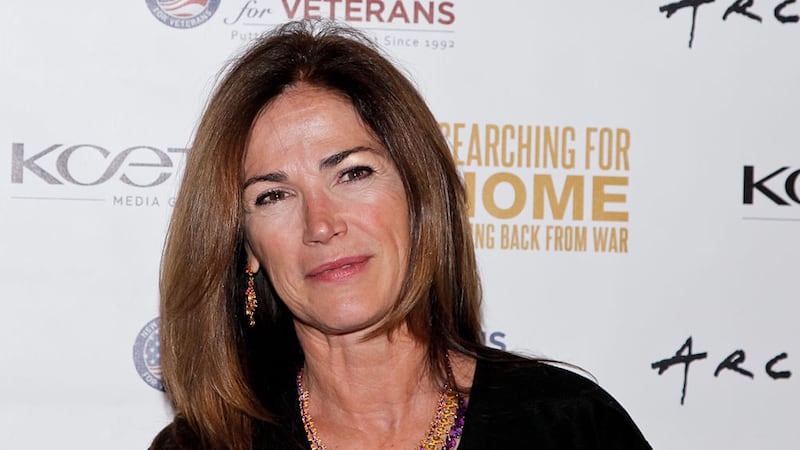Making food your life’s work, from bistro fare to fine dining creations - that’s what students are learning at the Seattle Culinary Academy (SCA).
Some students say French cuisine and male chefs can still dominate the world of upscale dining. But now they – and the academy – are working to change that.
From sauté to flambe, the kitchens are non-stop sizzle at Seattle Culinary Academy. Students are churning out food from around the world to learn the skills they need to become chefs, which is set by the American Culinary Federation.
“We work that into a world menu approach. There’s a sushi rotation, wok station, grill, sauté,” said Aimee LePage, dean of the Seattle Culinary Academy. “A long time ago it used to be classic French technique. I’m not sure when SCA started integrating world menus but we keep finding that we’re adding more,” LePage said.
Some chefs-to-be are starting their second careers at SCA - like fourth-quarter student Jenny Zhang.
“What was your previous career?” asked KIRO7′s Deedee Sun.
“I was a general surgeon,” Zhang said. She started a residency at UW Medicine about a decade ago, but now she’s traded one white coat for another.
“I enjoyed it, but ultimately what feeds my soul is cooking,” she said. “For me, I didn’t realize this was necessarily an option because I didn’t see a lot of female Asian chefs,” Zhang said.
She grew up around cooking. Zhang says her parents owned a Chinese restaurant in “the middle of nowhere” Louisiana.
“They worked so hard running their own business, and requiring the family to be there long hours. I think my parents just wanted something different for me. They wanted me to have an ‘easier’ lifestyle, which is why they pushed me into medicine,” she said.
She says a mix of parent influence and her own will led her to being a doctor, but during the pandemic, she found her chef’s hat.
“The apple doesn’t fall from the tree as they say,” Zhang said smiling. “I enjoyed it (surgery) but ultimately what feeds my soul is cooking,” she said.
But Zhang says she’s still looking for another piece.
“I think one thing I’ve struggled with is finding a mentor in this field, who looks like me and maybe has a background that’s relatable to me,” she said.
That is something the Seattle Culinary Academy is working on fulling for students – helping new chefs see themselves in leadership positions in the cooking world.
“Owning their own restaurants and having a community impact,” LePage said.
One way the school is doing that is by connecting them with top-tier chefs, and hosting panels with some of the best in the PNW. The events are student organized and have taken place during Black History Month and AAPI Heritage Month so far in 2023.
At the end of May, a panel of AAPI culinary professionals came to the Broadway Performance Hall next door to the SCA to talk shop.
“I love it. It makes it show tangible proof that you can be successful and be of a different ethnicity or minority. I love the fact that it’s mind-opening,” said Caleb Hobbs, a third-quarter student at SCA. “I think it’s so important to pour that into every student,” he said.
Chefs at the AAPI discussion panel included Aisha Ibrahim, the executive chef at Canlis.
“It’s a long journey. It’s not easy to find yourself and own yourself,” Ibrahim said.
“When my wife and I first started… the first thing we had to look at was, do I care about my culture, my identity, my people? That’s what we invested in,” said Aaron Verzosa, the owner and chef at Archipelago – a fine dining Filipino American restaurant that serves Pacific Northwest cuisine, and seats up to a dozen at a time.
Chefs on the panel shared struggles in discovering their identities.
“Growing up and thinking who a chef is – didn’t see myself in that. I always had a little bit of imposter syndrome. Should I be here?” said Shaili Parekh, a sous chef, and culinary instructor in the Portland area. She said she really found her footing after taking on a teaching role. “You can’t be small when you teach – you have to be big. We want to create this safe atmosphere where you can bring your whole self,” Parekh said.
Then another panelist, Tiffany Layco – executive chef of the Mayflower Park Hotel – shared an origin story that rang very similar to Zhang’s.
“When I stepped into this industry, it was by accident,” Layco said. “Having studied math and science all my life as well – which by the way was my own pressure, not my parents - to be a doctor,” Layco said.
Zhang’s journey is just beginning – from learning the chops to letting this massive life change marinate with loved ones.
“Did you have any pushback from family?” KIRO7′s Deedee Sun asked.
“It’s a process. Some days are easier than others when they want to accept it. So for me I just have to be happy with myself,” Zhang said. “You’re taking care of people at the end of the day, rather than giving them medicine - we heal with food,” she said.
©2023 Cox Media Group








